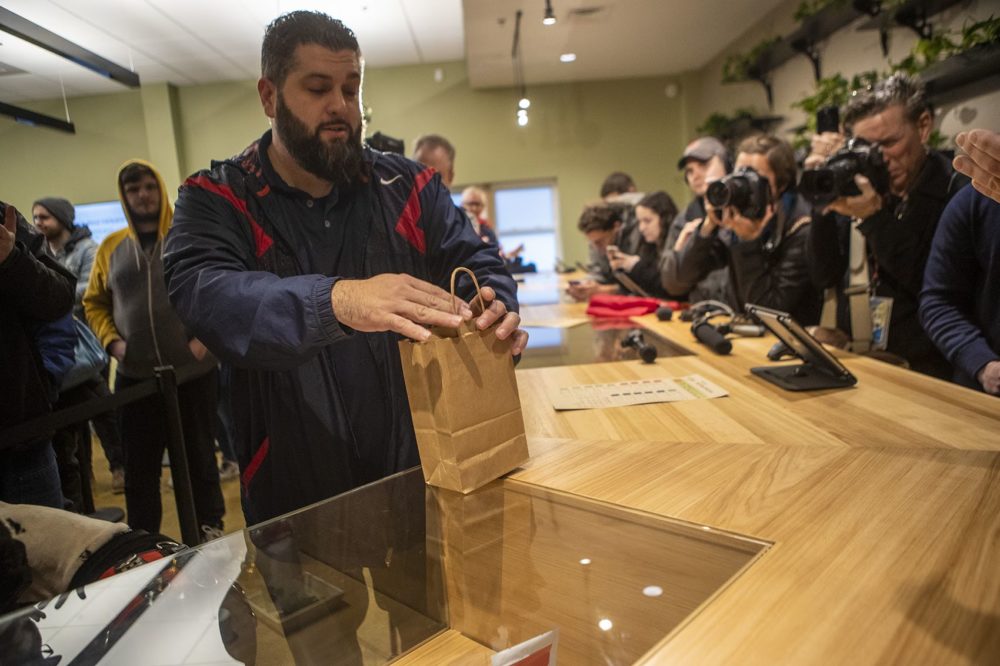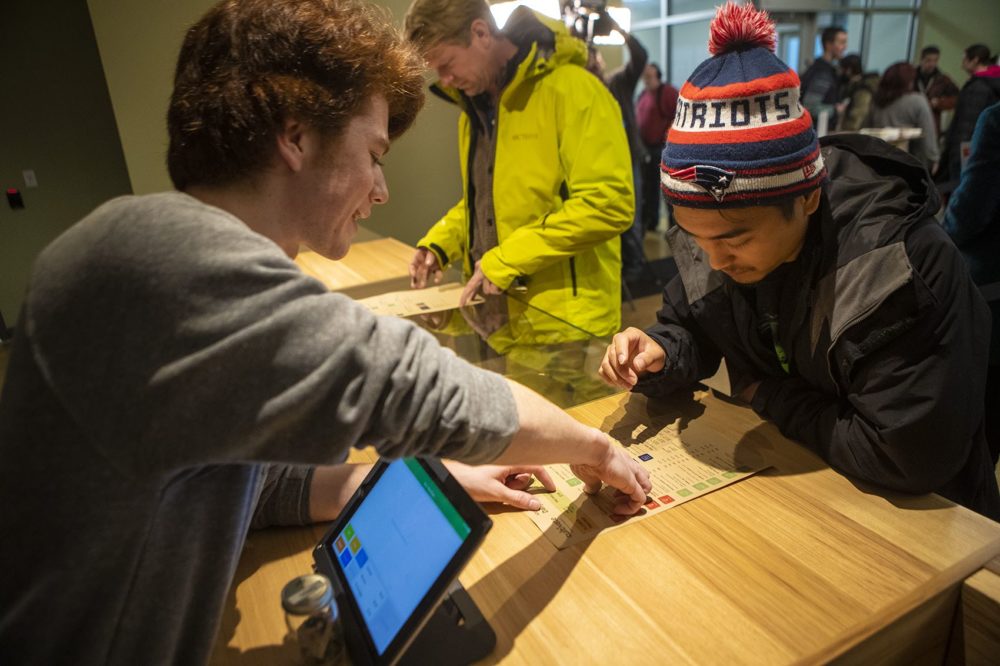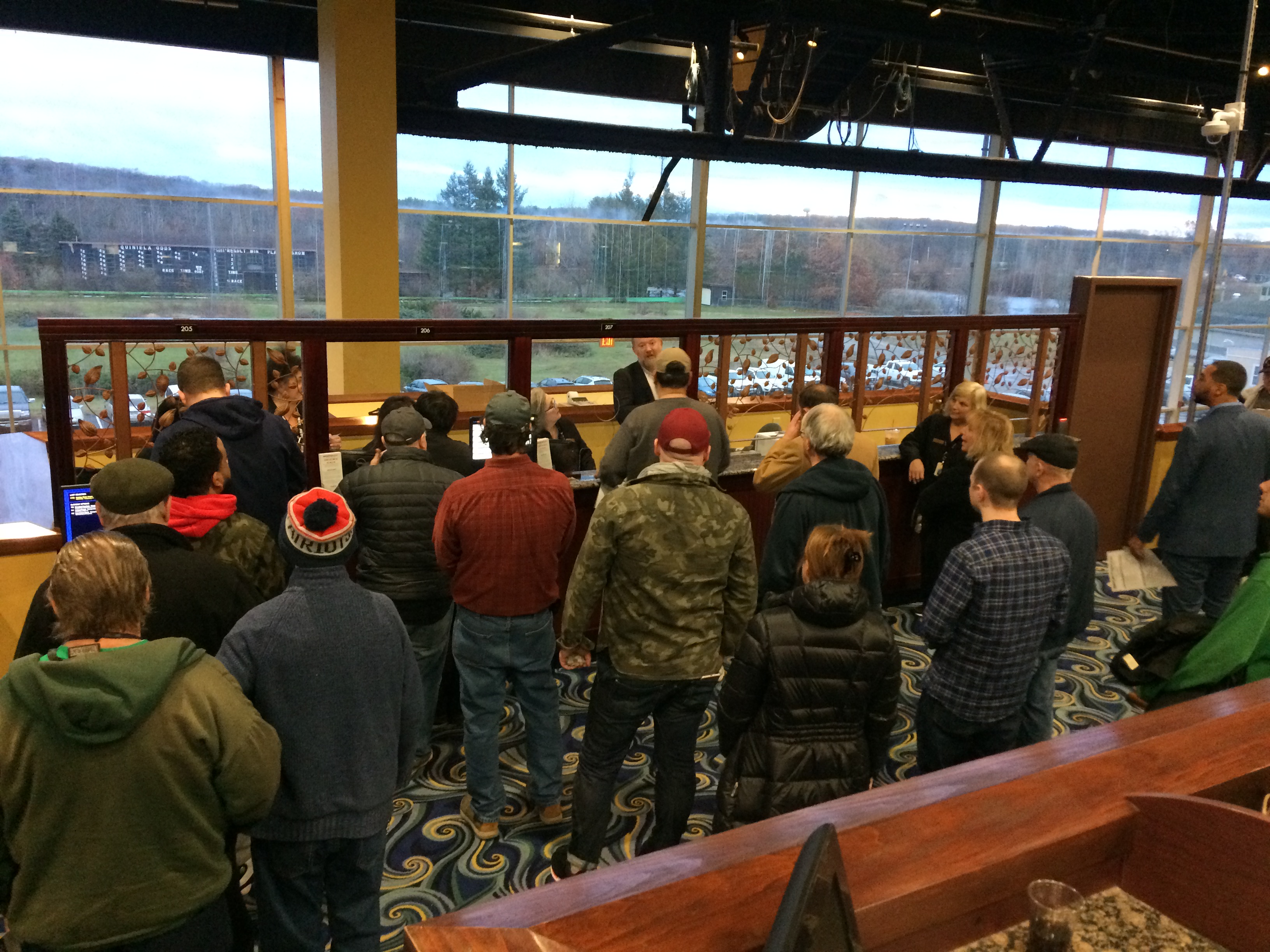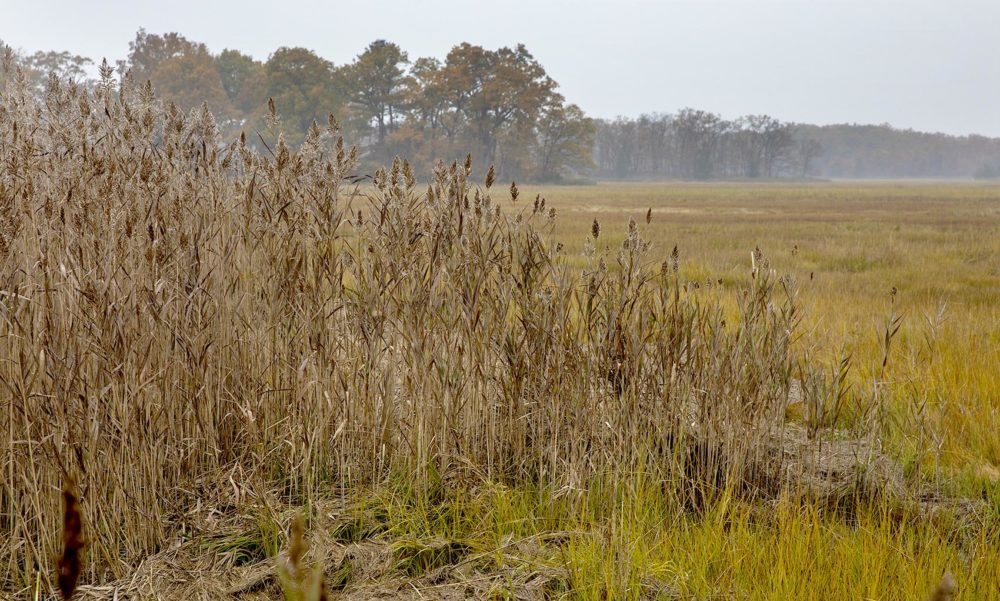Episode 122: Lining Up For Legal Pot; The Real Cost Of Electricity

This week on NEXT: we discuss the opening of recreational marijuana shops in Massachusetts, and the start of legalized sports betting in Rhode Island. Plus, we take a look at electricity prices around New England and reflect on our aging gas infrastructure. And, how an invasive species might play a role in curbing the effects of climate change. Finally, we explore what we can learn from the call of a bat, and consider the history of ‘Sheep Fever’ in New England.
It’s NEXT.
Recreational Marijuana Sales Begin in Massachusetts
On Tuesday, November 20, more than two years after a referendum to legalize marijuana, two recreational marijuana shops opened in Massachusetts, one in Northampton, and one in Leicester. The opening was met with long lines and $440,000 worth of cannabis sales on just the first day. In the first five days, the two shops sold over $2.2 million worth of marijuana.
Dan Adams, the cannabis reporter for the Boston Globe, was there on opening day and joined us to discuss what’s next for legalization around our region.
For more information, NEPR’s Alden Bourne was at the opening of New England Treatment Access, or NETA, in Northampton, and WBUR’s Ally Jarmanning was at the opening of Cultivate in Leicester. WBUR’s Steve Brown, Ally Jarmanning and Daigo Fujiwara created this map of registered cannabis businesses in Massachusetts. And The Boston Globe’s Dan Adams wrote this explainer about what’s next for legalization in Massachusetts. CommonWealth Magazine’s Jack Sullivan also wrote about ‘Big Marijuana’ in Massachusetts.
Sports Betting Begins in Rhode Island
Rhode Island is the first state in the region to offer legal sports betting. The Public’s Radio’s John Bender traveled just an hour south of that new marijuana shop in Leicester, to Twin River Casino in Lincoln, Rhode Island to talk to people waiting in line to place their bets.
Maintaining Our Aging Gas Infrastructure
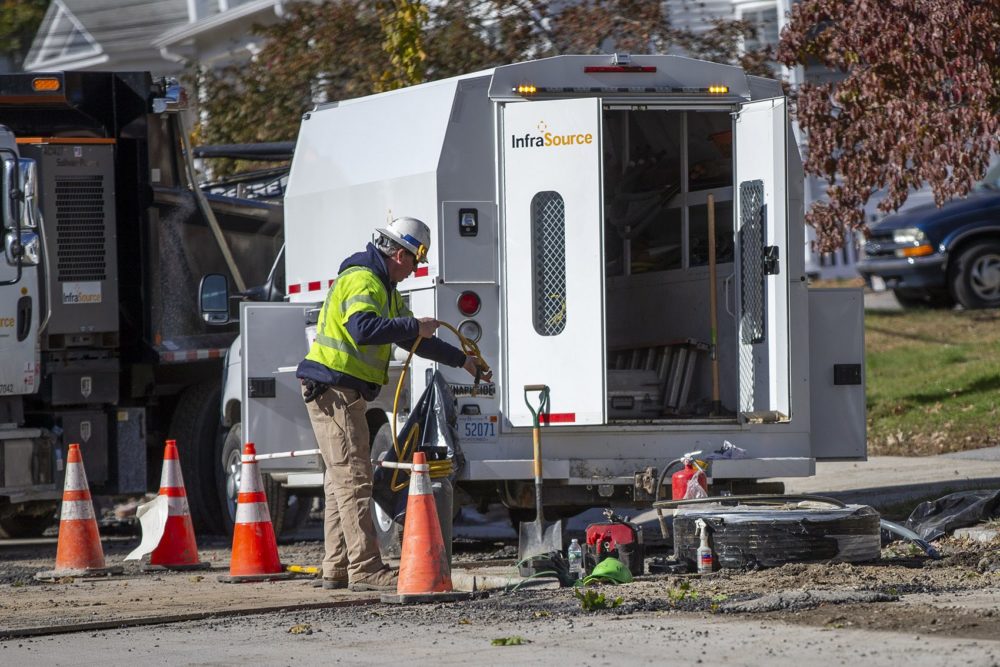
A utility worker hands a hose to another worker repairing gas lines underground that were damaged by a gas explosion on Salem Street in Lawrence. Photo by Jesse Costa for WBUR
The natural gas disaster that ripped through three communities in the Merrimack Valley in September and the pipeline overpressure emergency in the town of Woburn, Massachusetts weeks later, have focused attention on our region’s aging gas delivery system. It’s one of the oldest in the nation. In the aftermath, the Massachusetts Department of Public Utilities has ordered an independent examination of that state’s entire gas distribution infrastructure.
Keeping these pipelines operating safely is the job of utilities and union workers. But since this summer, there’s been additional stress on the system: National Grid, the state’s largest utility, has locked out more than a thousand union gas workers over a contract dispute.
WBUR’s Bruce Gellerman spent a day with one of the company’s veteran gas pipeline workers, who is also a union official.
How Affordable Is Your Electricity?
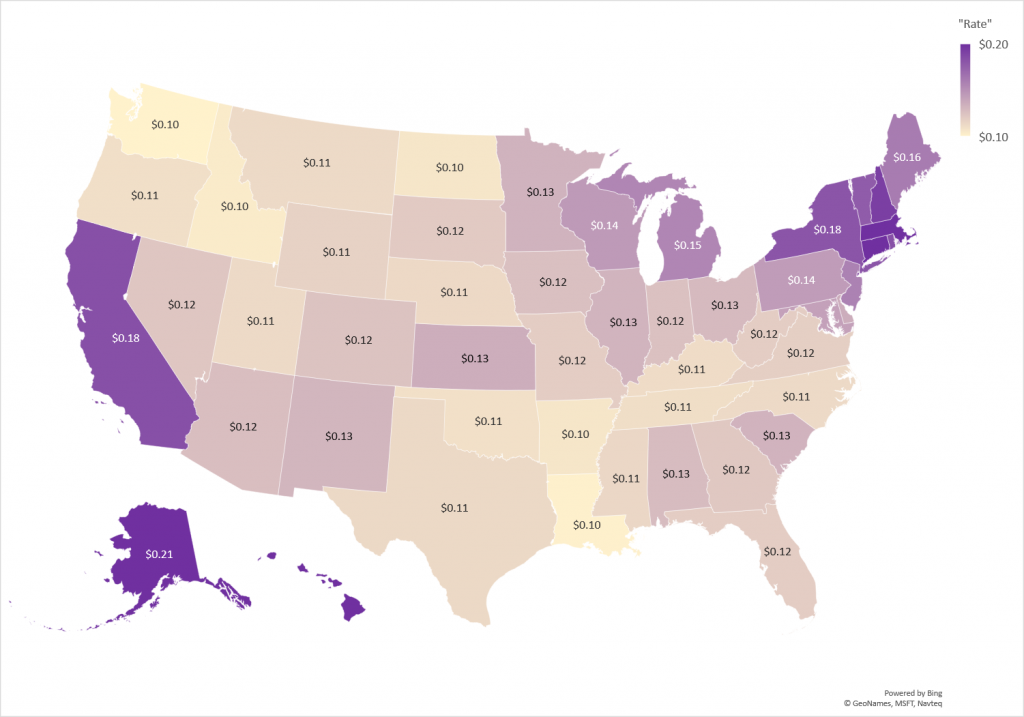
This map shows the average residential retail electric rates. Map courtesy of the Energy Information Agency (EIA), part of the US Department of Energy, from 2017
Winter is coming. In fact, it may already be here, and in New England, that means bigger bills for heating and electricity. It’s also true that any time of the year our region’s electric rates are higher than just about anywhere else. But compare New England to the rest of the country, and it turns out those bills might not be so bad after all.
Joseph Daniel is a senior energy analyst with the Climate and Energy Program at the Union of Concerned Scientists. He recently wrote a blog which compares the electric rates throughout the country. He’s been studying the rates and bills we pay, and he joined us to talk about why rates might not be the best way to talk about how much consumers are paying for energy.
Can This Invasive Species Help Curb Climate Change?
The Fourth National Climate Assessment was released last week. The report detailed the threats facing the United States due to the changing climate. WBUR’s Barbara Moran described five takeaways for our region from this report.
Adapting to climate change, and slowing down the effects is going to require innovative solutions, and maybe even the embrace of old enemies… like “phragmites.”
“Phragmites” the tall, bushy-topped reeds, are the number one enemy for many ecologists. Environmental groups spend big money trying to keep it from taking over wetlands. But emerging research shows that “phragmites” might have a shot at redemption, and it concerns the plant’s complicated role in climate change.
WBUR’s Barbara Moran has the full story.
What We Can Learn from the Call of a Bat
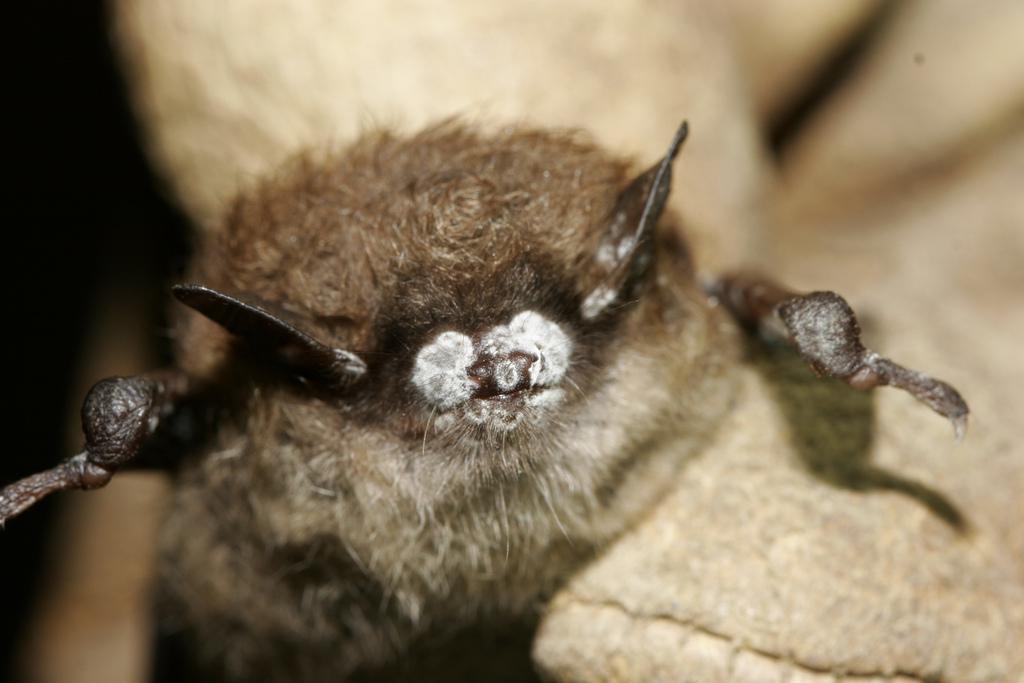
A little brown bat with White-nose syndrome photographed in 2008. Photo courtesy Ryan Von Linden, USFWS, New York Department of Environmental Conservation
The fungal disease White-nose syndrome has killed off millions of bats across America. Since it was first identified in 2006, it’s appeared on bats in more than 30 states — including all of New England, Quebec, and the Maritimes.
Now, as Connecticut Public Radio’s Patrick Skahill reports, scientists are trying to learn more about the impact of this devastating disease — by listening to the calls of the bats left behind.
When Machines Wouldn’t Do, This Town Called in Sheep
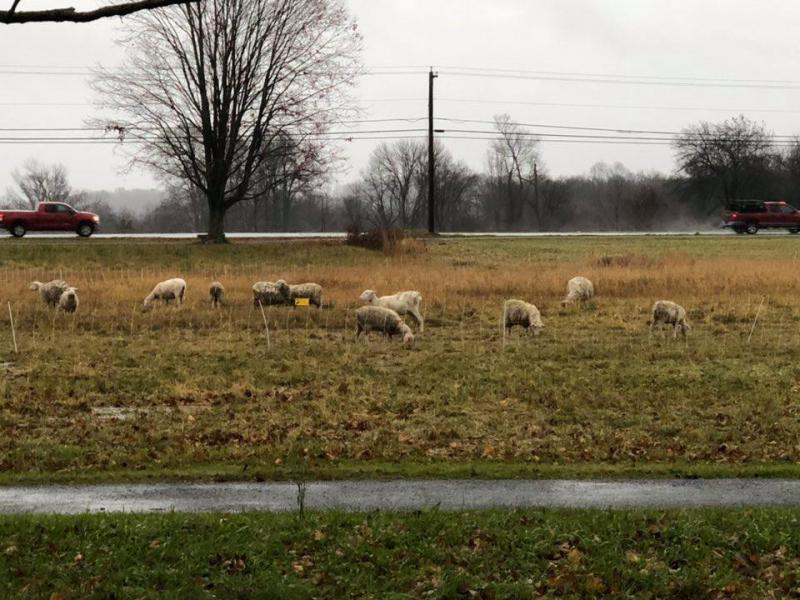
A herd of sheep on Lebanon’s town green were used to mow hay. Photo courtesy of the First Selectman’s Office, Town of Lebanon, Connecticut
Every winter in the small town of Lebanon, Connecticut, water on the historic town green freezes and becomes the perfect place for ice skating. But that picture-postcard setting relies on the conditions being just right. And this summer’s weird weather made them just wrong.
As Connecticut Public Radio’s Tucker Ives reports, the town needed to come up with a solution, so they brought in some hungry helpers. Using sheep to mow the lawn isn’t typical across New England, but they were once just about everywhere. Thomas Wessels is a terrestrial ecologist and professor emeritus at Antioch University New England, and told us about the history of “Sheep fever.”
Photo at the top of the page: Veteran Steven Mandile make the first purchase of recreational marijuana in Massachusetts at Cultivate in Leicester. Photo by Jesse Costa for WBUR
About NEXT
NEXT is produced at Connecticut Public Radio
Host: John Dankosky
Producer: Lily Tyson
Digital Producer: Carlos Mejia
Senior Director: Catie Talarski
Contributors to this episode: John Bender, Bruce Gellerman, Barbara Moran, Patrick Skahill, Tucker Ives
Music: Todd Merrell, “New England” by Goodnight Blue Moon, “The Chain” by Fleetwood Mac, “Boy With a Coin” by Iron and Wine, “Lightning” by David Byrne and St. Vincent, “Wolf” by First Aid Kit
—
New to NEXT? You can find every episode or one you missed within our archives.
We appreciate your feedback! Send critiques, suggestions, questions, and ideas to next@wnpr.org. Follow us on Facebook and Twitter. Help us spread the word! If you like what you hear, rate and review us on iTunes.

